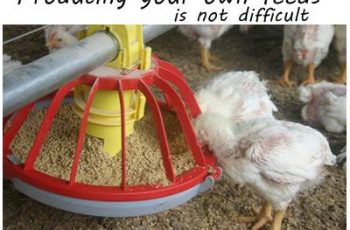How To Start Profitable Zobo Farming In Nigeria (Hibiscus Plant): Your Guide

Zobo farming in Nigeria can be the lifesaver for you, especially with the current spate of unemployment and hardship in the country. Although hibiscus farming is somewhat unpopular in Nigeria, farmers are starting to realize its monetary value in the market. The leaves of the hibiscus plant are used in the production of the popular zobo drink. It will interest you to know that Nigeria is one of the leading producers of hibiscus flower in the world.
Also read: How to rake millions from castor seed farming in Nigeria
Zobo farming in Nigeria does not require huge capital for you to start, in other words you can start small and expand the business gradually. The hibiscus plant belongs to the mallow family and the scientific name is Hibiscus sinensis.You should know that the zobo plant is a warm-growing plant that is cultivated in African countries like Nigeria, Mali, Senegal, and Sudan.
With the current availability of government agricultural loans and grants, you should maximize the opportunity in the agricultural sector. The growing population of Nigeria is a huge reason why you should consider venturing into an agribusiness investment like zobo farming in Nigeria. Now is not the time to rely on anybody for your livelihood, you have got to be the one in charge of the financial wheel of your life.
In Nigeria, Jigawa, Kastina, Borno, Gombe, Bauchi, and Kano are the major hibiscus farming states in Nigeria.
Why you should start zobo farming in Nigeria
A report published by Vanguard newspaper on the 5th of February 2018 showed that Nigeria generated about $35 million within 9 months in 2017. This tells you that zobo farming in Nigeria is highly lucrative. Form the statistics above, you can decide to supply indigenous buyers or you can join the exporting league. Whichever one you are doing, you are certainly going to be making huge amount of money from hibiscus farming business.
The hibiscus plant is of high value according to the Coordinating Director of Nigerian Agricultural Quarantine Service (NAQS), Dr Vincent Isegbe. Another important thing you should know about the zobo plant is that it is perennial crop. This means that you can keep harvesting for years after your planting. The supply chain in this business is really few which means that more afropreneurs are needed for zobo farming in Nigeria.
Also see: How to start avocado farming and exporting business in Nigeria
There is high commercial value in the hibiscus farming business that you don’t want to miss out on it. The zobo plant can be used as an organic coloring agent for drinks, wines, and as natural blended drink as we have here in Nigeria. It will also interest you to know that pharmaceutical companies make use of the plant for coloring due to its organic nature. Believe me; you really don’t want to miss on the high-profit potential of zobo farming in Nigeria.
In Nigeria, there are lots of buyers of hibiscus flower in Nigeria, aside from those already mentioned.
Requirements For Starting Your Zobo Farming In Nigeria
Before you venture into commercial zobo farming in Nigeria or hibiscus farming business, there are certain things you really need to put in place. By ensuring the availability of these requirements, you have greatly improved your chances at success in hibiscus farming business in Nigeria. These important requirements include the following:
-
Well-detailed hibiscus farming (zobo plant) business plan
Before you start commercial zobo farming in Nigeria, you need to ensure you out a good hibiscus farming business plan. Your business plan will help you to know more about the market both local and international. You need to carry out a market survey, SWOT analysis, know your competition, etc. A hibiscus farming business plan will not only guide you in the course of your business in Nigeria, you can also apply for government agricultural loans and grants using the business plan.
So, you can agree with me that having a good business plan is an indispensable aspect of starting zobo farming in Nigeria.
-
Site selection, preparation, and planting
Once you are done with your business plan and startup capital is available, the next task will be to select a farmland to start your hibiscus farming business. It is advisable you go for sandy-loam soil with a pH within the range of 5.5 – 6.5. Acidic soil is very good for the hibiscus farming business.
After you have chosen the farmland, then you proceed to clearing and tilling the ground in preparation for planting your zobo plants. You can plant the hibiscus flower in two ways, either by seed broadcast or stem propagation. The stem of the parent plant is cut about 5 to 6 inches with the bottom wet with liquid fertilizer in order to hasten germination.
It will take between 8 to 10 weeks for the stem-propagated hibiscus to develop roots. When planting with seeds, you need to first soak the seeds in water overnight before planting them. To have profitable zobo farming in Nigeria, you must be meticulous about your planting methods.
-
Pruning your hibiscus plant
The pruning is usually done between August and October in order to stimulate the growth of new shoots and buds. You need to always remove the branches growing sideways so as to have erect plants. In order to ensure that the plants are not too big, cut one-third of their main branches off.
-
Irrigation in zobo farming in Nigeria
During the dry season, ensure you irrigate your hibiscus farm because lack of water causes the leaves to turn yellow and fall off afterwards. Always ensure your plants have good availability of water but avoid excess irrigation in order to prevent root rot disease.
-
Fertilizer application
To improve yield, you can always apply fertilizer like treated animal dung or liquid fertilizer. You can also go for the NPK as they also improve yield.
-
Pest and disease control in zobo farming in Nigeria
Efficient control of pests and diseases is vital to the profit potential of your zobo farming business. Aphids, mealy bugs, spider mites, and stem/root rot are the most common pest and diseases that attack hibiscus plants. Make use of neem oil or pesticides to control these pests. You should also avoid planting in waterlogged areas.
-
Maturity, harvest, and drying
The zobo plant attains maturity within 4-8 months after planting, depending on the variety of the plant. You can harvest between October and November, but it must be when the flowers are fully bloom. It is important that you harvest only the healthy flowers and also allow some stem on the flower for easy drying. You should wash the flowers to remove dirt and insects that might be attached.
Get a mat or anything that you can spread the flowers on and keep where the wind won’t blow them away. You then spread the flowers on the material under the sunlight during the day until they are completely dried to the lowest minimal moisture.
-
Marketing your Zobo plants
At this point, you must have identified the people that are your customers and then supply to them accordingly. If you want to go into export, then there are certain things you have to put in place before doing that. The next article will be on how to export your Zobo plants for maximum profit.
ATTENTION…
For your well-detailed hibiscus farming business plan or business plan on any niche, contact us and your order will be available within 2 weeks of your order. Make that call today and be glad you did.
For your comments and contributions on zobo farming in Nigeria, kindly make use of the space provided below. THANKS

